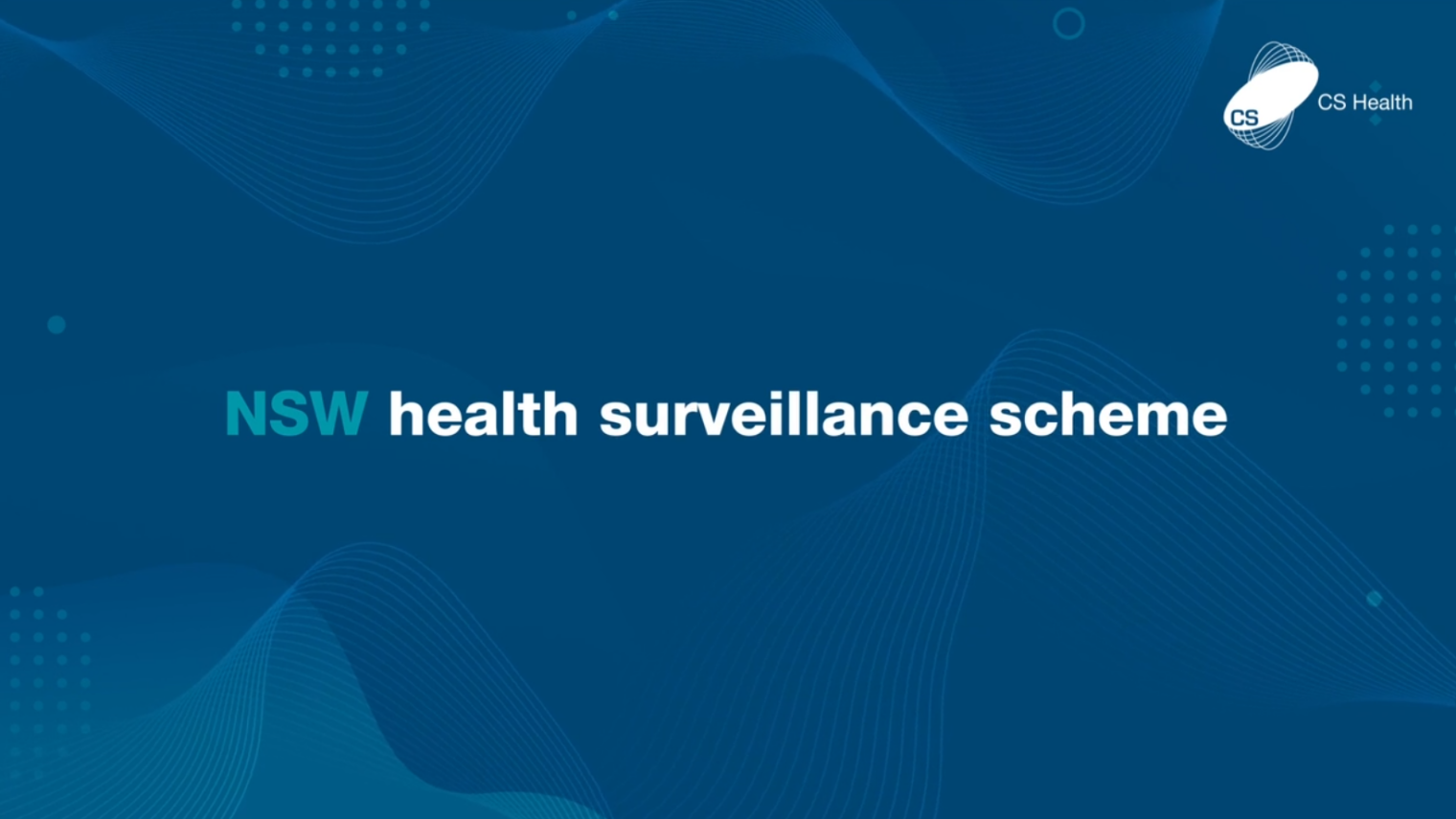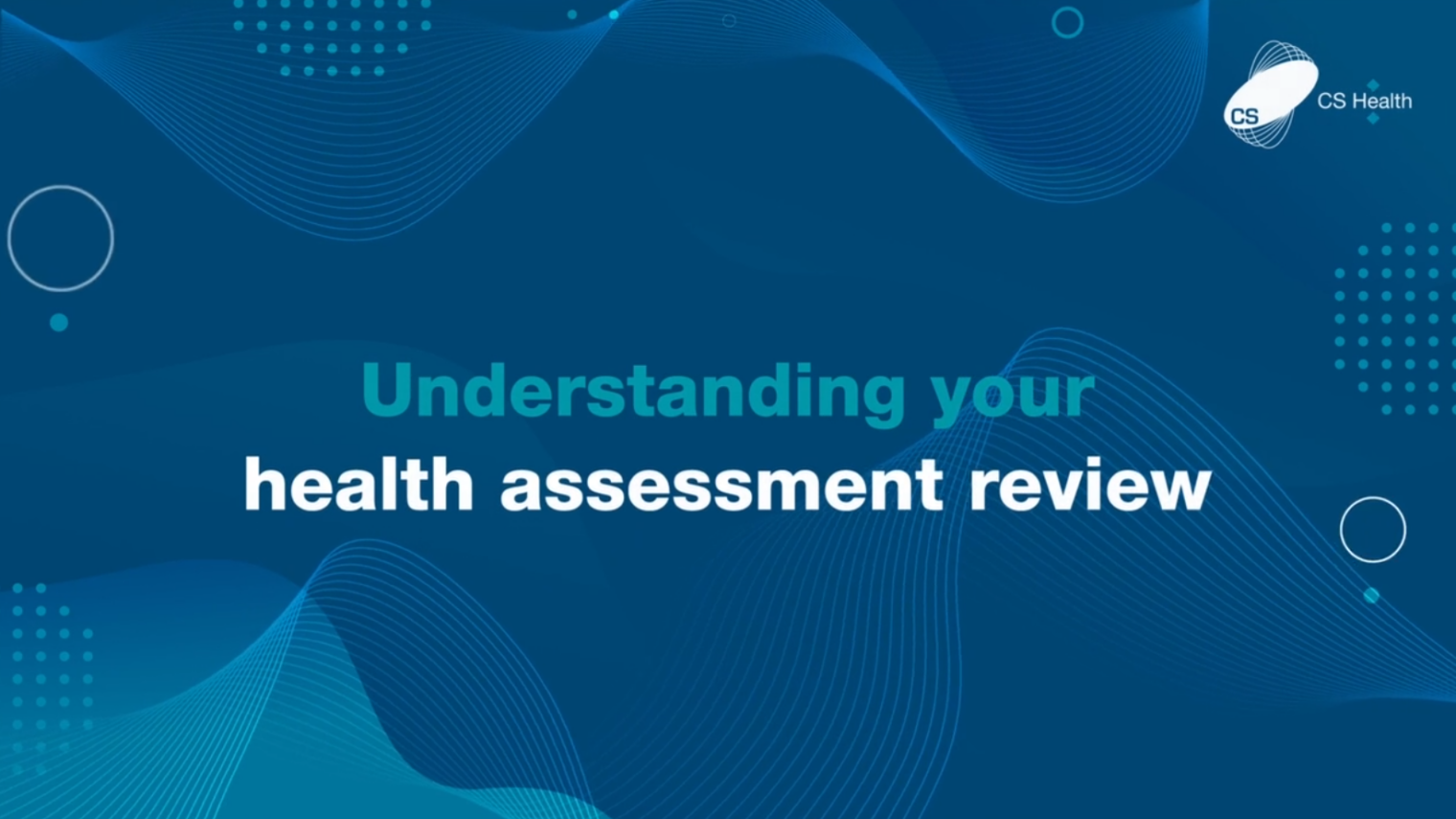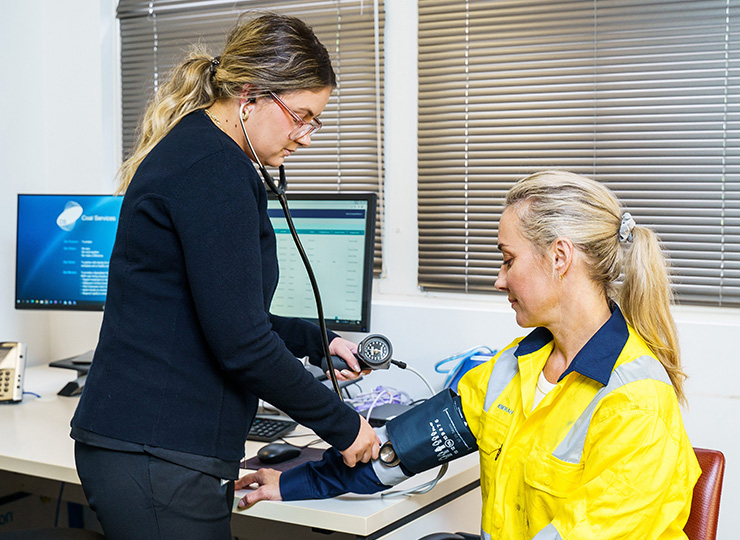On this page
Health surveillance scheme for NSW coal mine workers
The Coal Services Health Monitoring Requirements for Coal Mine Workers Order No. 45 (Order 45) plays a critical role in ensuring that NSW coal mine workers are adequately screened for any health effects due to occupational exposures to dust, noise, chemicals, and other workplace hazards. Coal Services is responsible for administering the Order under the Coal Industry Act 2001 (NSW).
The health assessments detailed in the Order can also identify other health and lifestyle-related conditions that may impact a coal mine worker’s ability to work safely and effectively. Regular screening provides an opportunity to identify occupational and non-occupational diseases early, often before symptoms manifest. This provides greater scope for effective treatments and preventative measures to keep coal mine workers safe.
The health surveillance scheme also helps NSW coal industry employers to fulfil their health and safety obligations to protect the health and wellbeing of their workforce.
Order 45 documents
To enable us to provide an efficient service when you attend for your assessment YOU MUST:
- Arrive 20 minutes prior to the appointment to complete necessary paperwork
- Avoid loud noise for 16 hours prior to the health assessment (e.g. listening to radio while travelling to appointment)
- Bring photo identification to the appointment (e.g. driver’s licence)
- Bring any relevant x-rays or doctors’ reports you have available
- Bring any prescription glasses to the appointment (e.g. reading/distance lenses)
- Please DO NOT wear contact lenses as your uncorrected vision will be tested
- Bring a list of any prescribed medications
- Be able to provide a urine sample
- Have parental consent for the assessment if under 16 years of age
If you are late or unable to attend
- You must advise CS Health by phone immediately if running late as your appointment may need to be rescheduled.
- If you are unable to attend your scheduled appointment you must notify the employer who has arranged your booking, rescheduling or cancellation should only occur through consultation with the Employer and CS Health.
CS Health has a zero-tolerance policy
Inappropriate, unsocial or abusive behaviour will not be accepted. If your conduct is inappropriate at the time of your health assessment, your appointment will be cancelled and you will be asked to leave CS Health. CS Health will conduct a compulsory breath analysis test prior to the commencement of all health assessments. This process is in line with Coal Services’ zero tolerance policy.
All persons attending for a health assessment must have a blood alcohol concentration of 0.00 for the assessment to proceed.
There are times when you may need a copy of your medical information – either from an Order 45 health assessment, chest x-ray or other medical or treatment information.
CS Health will happily provide your information as outlined in the Health Records and Information Privacy Act 2002.
Making a request for information
CS Health has a ‘request to release information’ form that outlines the details we need from you in order to manage your request. See below to download a copy.
Responding to your request
CS Health’s policy is to release this information within 30 days of receiving your request. However, we aim to get this to you as soon as practicable.
Confirming your identity
Under the Health Records and Information Privacy Act 2002, CS Health must confirm your identity before any medical records or personal information can be released.
- If you visit a CS Health office to submit your request, you will need to show a photo ID (e.g. drivers license, passport).
- If you are not submitting your request in person, your identity will need to be confirmed by someone who is entitled to witness a Commonwealth of Australia Statutory Declaration as defined in the Statutory Declaration Regulations 2018.
Eligible persons include but are not limited to certain medical providers (doctor, dentist, chiropractor, nurse, optometrist), legal practitioners, financial advisors/accountants, Justice of the Peace, Minister of religion, Police officer.

Order 45 health assessments for the NSW coal industry

Understanding your Order 45 health assessment review
Share this page

